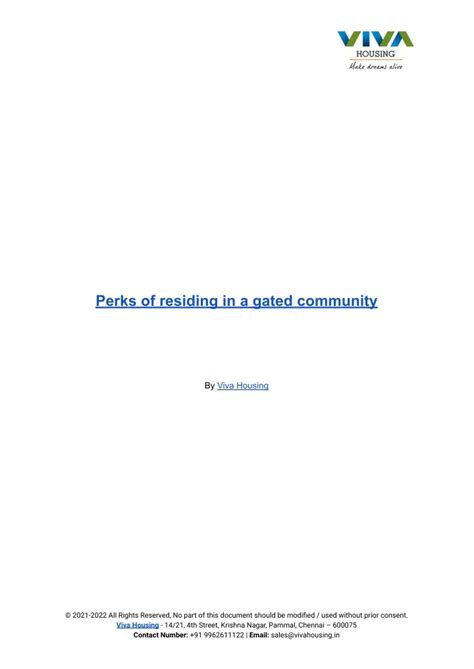In today's evolving society, the concept of cohabitating with parental figures has become a topic of profound discussion and contemplation. The choice to dwell alongside guardians during adulthood presents an array of unique circumstances, which warrant a thorough evaluation of its advantages and potential challenges. This article endeavors to delve into the depths of this intriguing phenomenon and shed light on the multifaceted aspects of aspiring to share a living space with parents.
Embracing the Familial Bond:
One compelling facet of this arrangement is the opportunity to foster and nurture the familial bond that exists between parents and their adult offspring. By choosing to reside under the same roof, individuals can cultivate a deep sense of kinship, strengthening the emotional ties that form the foundation of a family unit. This shared living experience offers a distinct chance to create lasting memories, share common values, and partake in various familial traditions, ultimately fostering a profound connection between generations.
Moreover, cohabitating with parents can prove to be an invaluable source of support and guidance.
Parents, having garnered a wealth of life experience, can offer invaluable wisdom and advice to their adult children who may still be exploring their own path in life. This arrangement allows for daily interactions that facilitate a constant exchange of ideas, fostering personal growth and self-reflection. It ensures that parents can actively partake in the trajectory of their offspring's lives, serving as a reliable support system during times of both triumph and adversity.
The Delicate Balance:
While the advantages of cohabitating with parents are undeniably enticing, it is essential to acknowledge the inherent challenges that come hand in hand with this arrangement. One such obstacle is the necessity of striking a delicate balance between autonomy and interdependence. Living with parents requires individuals to navigate a unique dynamic, juggling the need to assert their independence while simultaneously respecting parental guidance and authority.
Furthermore, one must address the potential stigma that society may attach to residing with parents beyond the typical period of transition from adolescence to adulthood.
There can be external judgment and misconceptions associated with the decision to share living quarters with parents, often equating it to a lack of personal growth or ambition. It is crucial to challenge these societal norms and reframe the narrative, recognizing that living with parents can be a deliberate choice made for various reasons, such as financial stability, cultural values, or a desire to cultivate a strong familial bond.
In conclusion, cohabitating with parents during adulthood offers a unique opportunity to nurture the familial bond, provide a source of support and guidance, and create a lasting connection. However, it also requires individuals to navigate the delicate balance between autonomy and interdependence, all while challenging societal norms and preconceptions. Understanding the benefits and challenges inherent in this arrangement empowers individuals to make an informed choice that aligns with their personal values and aspirations.
Perks of Residing with Family

Living in close proximity with one's family provides a multitude of advantages that go beyond the basic concept of home. Sharing a residence with parents or guardians offers individuals a unique set of benefits and opportunities for personal growth.
- Economical Advantage: Combining resources and expenses with family members significantly reduces financial burdens. This arrangement allows for potential savings on rent, utility bills, groceries, and other daily expenses.
- Emotional Support: Living with parents fosters a sense of emotional security and comfort. It provides an invaluable support system that can help individuals face the challenges encountered in everyday life.
- Intergenerational Bonding: Residing with parents promotes intergenerational bonding and deepens family relationships. Sharing experiences, traditions, and stories strengthens family ties and creates a sense of belonging.
- Practical Assistance: Having family members around offers practical assistance in various aspects of life. From childcare and household chores to professional advice and guidance, living with parents can provide a helping hand when needed.
- Mutual Growth: Living with family fosters an environment where individuals can learn from each other's experiences, perspectives, and wisdom. It creates an opportunity for mutual growth and personal development.
- Cultural Connection: Residing with parents allows individuals to stay connected to their cultural roots and traditions. This connection can enhance one's identity and appreciation for heritage, customs, and values.
In summary, residing with parents or guardians presents an array of benefits, ranging from financial advantages to emotional support, fostering intergenerational bonding, providing practical assistance, facilitating mutual growth, and maintaining cultural connections. These advantages contribute to a well-rounded and enriched life experience for individuals who choose to live with their parents.
Financial stability and savings
In the realm of financial stability and savings, there exist numerous advantages and difficulties associated with the idea of residing alongside one's parents. Embracing this unique living arrangement can offer individuals the opportunity to cultivate a solid financial foundation while also allowing for the accumulation of savings. However, this scenario can also present challenges that individuals must navigate in order to achieve their financial goals.
Emotional Support and Family Bonds

The aspect of living with parents goes beyond the practicalities of sharing a home; it encompasses the invaluable emotional support and the deepening of family bonds that can be experienced in this unique living arrangement.
1. Foster Strong Relationships: living with parents can create a conducive atmosphere for fostering strong relationships within the family unit. The daily interactions and shared experiences enable family members to grow closer to one another, establishing a solid foundation built on love, trust, and understanding.
2. Emotional Stability: Having parents as a constant source of emotional support provides a sense of stability and comfort in navigating life's challenges. Their presence can offer reassurance during difficult times, as well as a safe space for venting feelings and seeking guidance.
3. Intergenerational Wisdom: Living with parents offers the opportunity for intergenerational wisdom to be passed down from one generation to another. Parents, through their life experiences, can offer valuable advice, guidance, and teachings, which can greatly contribute to personal growth and development.
4. Shared Values and Traditions: Living with parents allows for the preservation and sharing of family values and traditions. These shared customs enhance the sense of identity and belonging, providing a strong cultural heritage that can be handed down to future generations.
5. Supportive Network: In times of personal triumphs and hardships, having parents present can provide a built-in support system. They can celebrate achievements, offer encouragement during setbacks, and provide a network of support that extends beyond the immediate family circle.
Overall, living with parents creates an environment where emotional support is readily available, enabling family bonds to flourish. The intertwined relationships, shared experiences, wisdom exchange, and preservation of values enrich the lives of all family members, establishing a strong emotional foundation for personal growth and fulfillment.
Opportunity for Personal Growth and Self-Discovery
Embarking on the journey of living independently from our parents presents a unique set of opportunities for individuals to grow and discover themselves. In this chapter, we will delve into the various ways in which this experience can contribute to personal development, allowing individuals to gain a deeper understanding of their own strengths and weaknesses.
Living apart from our parents provides us with a chance to explore our interests and passions, as well as to experiment with different aspects of our lives. It encourages us to step out of our comfort zones and take on new challenges, fostering creativity and resilience. The process of self-discovery involves not only uncovering our talents and interests but also understanding our values and beliefs, and the independence gained from living away from our parents gives us the freedom to do so.
Moreover, living independently allows individuals to develop essential life skills that contribute to personal growth. From managing finances and maintaining a household to making decisions and solving problems on our own, these experiences provide invaluable lessons and help shape our character. This level of responsibility fosters independence, self-reliance, and can boost self-confidence as we learn to navigate the complexities of adult life.
Living away from our parents also gives us the opportunity to establish and cultivate our own social networks and connections. We have the chance to meet new people from different walks of life, expand our perspectives, and build meaningful relationships. These interactions can lead to personal and professional development, opening doors to new opportunities and experiences that may have otherwise remained unexplored.
In conclusion, embracing the opportunity to live independently from our parents offers a multitude of benefits for personal growth and self-discovery. It allows us to explore our interests, develop important life skills, and establish our own social networks, ultimately leading to a greater understanding of ourselves and our place in the world.
FAQ
What are the benefits of living with parents?
Living with parents has several benefits. Firstly, it helps save money as you don't have to pay for rent or utilities. Secondly, you have a built-in support system readily available whenever you need it. Thirdly, living with parents allows for a stronger bond and connection with family members. It also provides a sense of security and stability.
What are some challenges of living with parents?
Living with parents can also have its challenges. One challenge is the lack of privacy and independence. Living with parents means having to follow their rules and regulations. It can also be difficult to establish oneself as an adult when still living with parents. Additionally, conflicts and disagreements may arise due to differences in opinions and lifestyles.
Is living with parents a common practice?
Living with parents is a common practice in many cultures around the world. In some cultures, it is expected for children to live with their parents until they get married or start their careers. However, it is important to note that living arrangements vary widely depending on cultural norms, economic factors, and personal circumstances.
Does living with parents affect one's social life?
Living with parents can have an impact on one's social life to some extent. Depending on the dynamics within the household, there may be restrictions on inviting friends over or going out late at night. However, this can also be seen as an opportunity to foster closer relationships with family members and find alternative ways to socialize outside of the home.
How do you maintain a healthy relationship with parents while living together?
Maintaining a healthy relationship with parents while living together requires open communication, respect, and compromise. It is important to establish boundaries and clearly communicate expectations. Regularly expressing gratitude and showing appreciation for their support can also strengthen the relationship. Additionally, finding common interests or activities to engage in together can help foster a positive dynamic.



